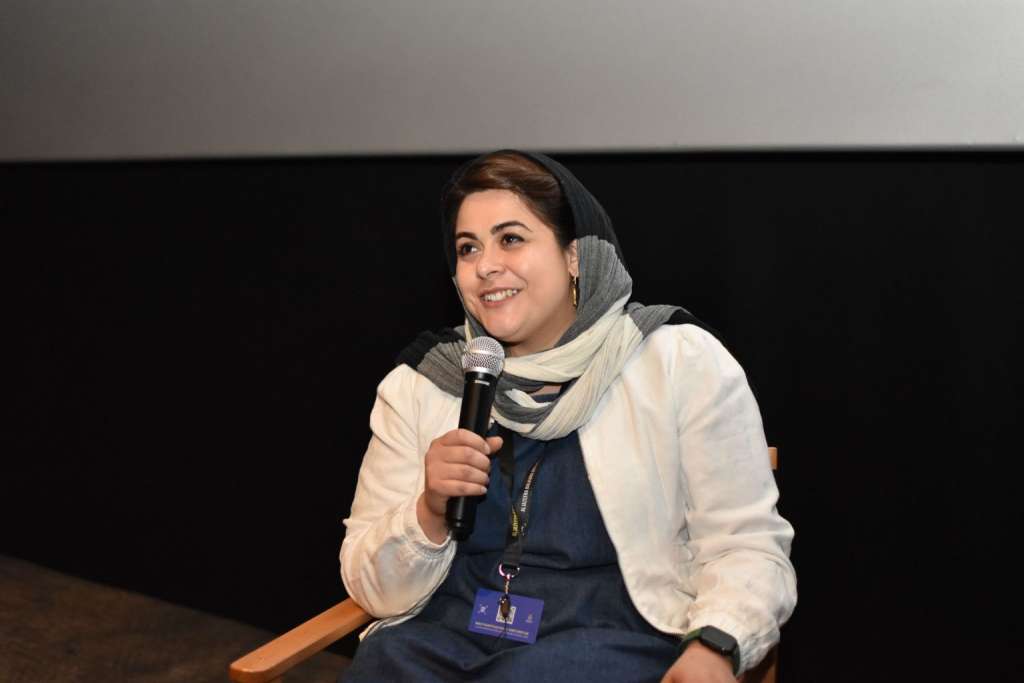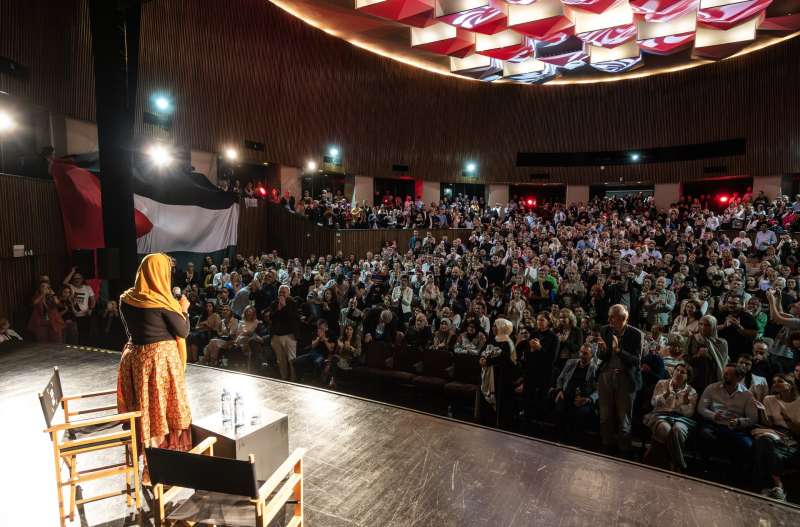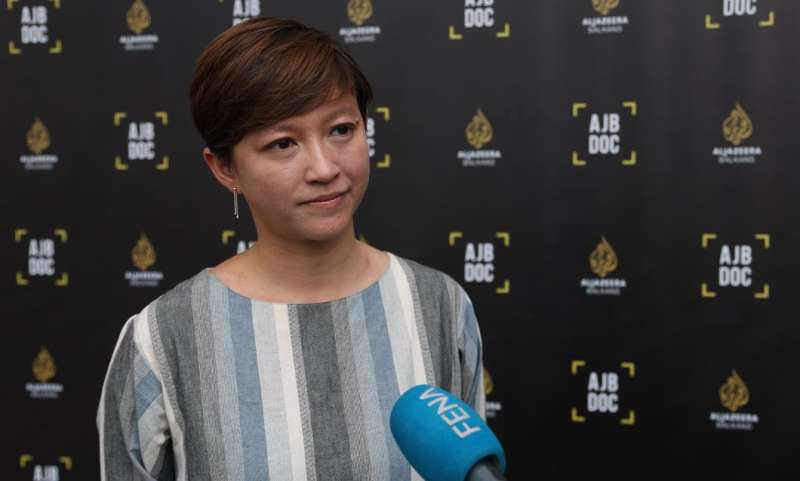SARAJEVO, September 18 (FENA) - The documentary film "Grand Me" by Iranian director Atiye Zare Arandi, which tells the story of an Iranian girl who, through no fault of her own, finds herself in the midst of an emotional storm due to her parents' divorce and the future custody decision, was screened as part of the Competition Program of the 7th AJB DOC Festival in Sarajevo.
The film’s director, who is also the aunt of the girl, Melina, in an interview with FENA discussed the filming process, Melina's longing for her home and family, her desire to present her case in court, and her ambition to follow in her aunt's footsteps and become a filmmaker.
The film is set in Isfahan, Iran, and follows the girl Melina, who, since her parents' divorce, has been living with her grandparents. She wants to live with her mother, but this is not possible as both her father and stepfather oppose it. Additionally, Melina's mother is trying to balance her relationship with her new husband while maintaining a connection with her daughter. As a result, even two years after remarrying and moving to Tehran to live with her new husband and his children, she is still not in a position to bring Melina to her new home.
As Melina celebrates her 9th birthday, she is finally old enough, according to Iranian law, to present her custody case in court. With the law on her side, she hopes to be able to choose her own guardian.
In an interview with FENA, the director of the film spoke about the greatest challenges of making such a deeply personal film about a family issue, emphasizing that the most difficult part was handling the emotions due to her love for her niece.
"First of all, I want to say, never make a film about your own family because it’s awful, as we all went through tough times. My parents, and the dearest person in my life, Melina, and me as her aunt, but also behind the camera—we all cried, we hugged her, and it was really hard," said Arandi.
Regarding the technical aspect, she mentioned that she made the film entirely by herself.
"I shot both video and audio separately but at the same time because I couldn’t bring in anyone who was a stranger to our home to help with everything. I wanted my family to feel comfortable and at ease, and the whole filming process took two years," she explained.
When asked about her family’s reaction after watching the film, she said they all watched it together, and her parents especially liked it since they are the heroes of the film and the heroes of Melina’s life.
"After watching the film, Melina said, 'I am really a beautiful actress.' My sister cried, and after some time, she changed her attitude about what to do for Melina. Since watching the film, she has shifted her perspective, and I’m really happy because of that. She needed to see things from Melina’s point of view, and now my sister is trying to bring Melina to live with her in her home," Arandi stated.
When asked to clarify Iranian custody law, Arandi explained that in Iran, girls have the right to appear before the court after they turn nine years of age. "In Islam, we have the rule that girls are considered mature at nine years old; they can marry, have children, and so they can also decide on their custody in case of divorce and choose who they want to live with."
She added that boys, according to Iranian law, are considered mature at the age of 15.
Speaking about the social and legal aspects of who should help the girl understand the court process and its consequences in order to make the best decision for herself, she said that the court tries to ensure the child is mature enough to understand what’s happening. "A therapist is also assigned to her, who talks to her and helps her find the best way to decide where she wants to live and why."
Finally, Arandi discussed the reasons for making this film, noting that Melina was recently asked in school what she wanted to be when she grew up, and she answered that she wanted to be a filmmaker like her aunt.
"I think this film was a really good start to help Melina find her way. I gave her a mobile phone and told her she could practice making films. She asked how, and I said she could practice by telling her own story. After six months, I watched the selfies and videos she had made and realized it was important material for Melina, for her mind and inner state. Melina is the main protagonist, but also the inspiration for this film," said Atiye Zare Arandi at the end of her interview with FENA.
(FENA) S. R.












